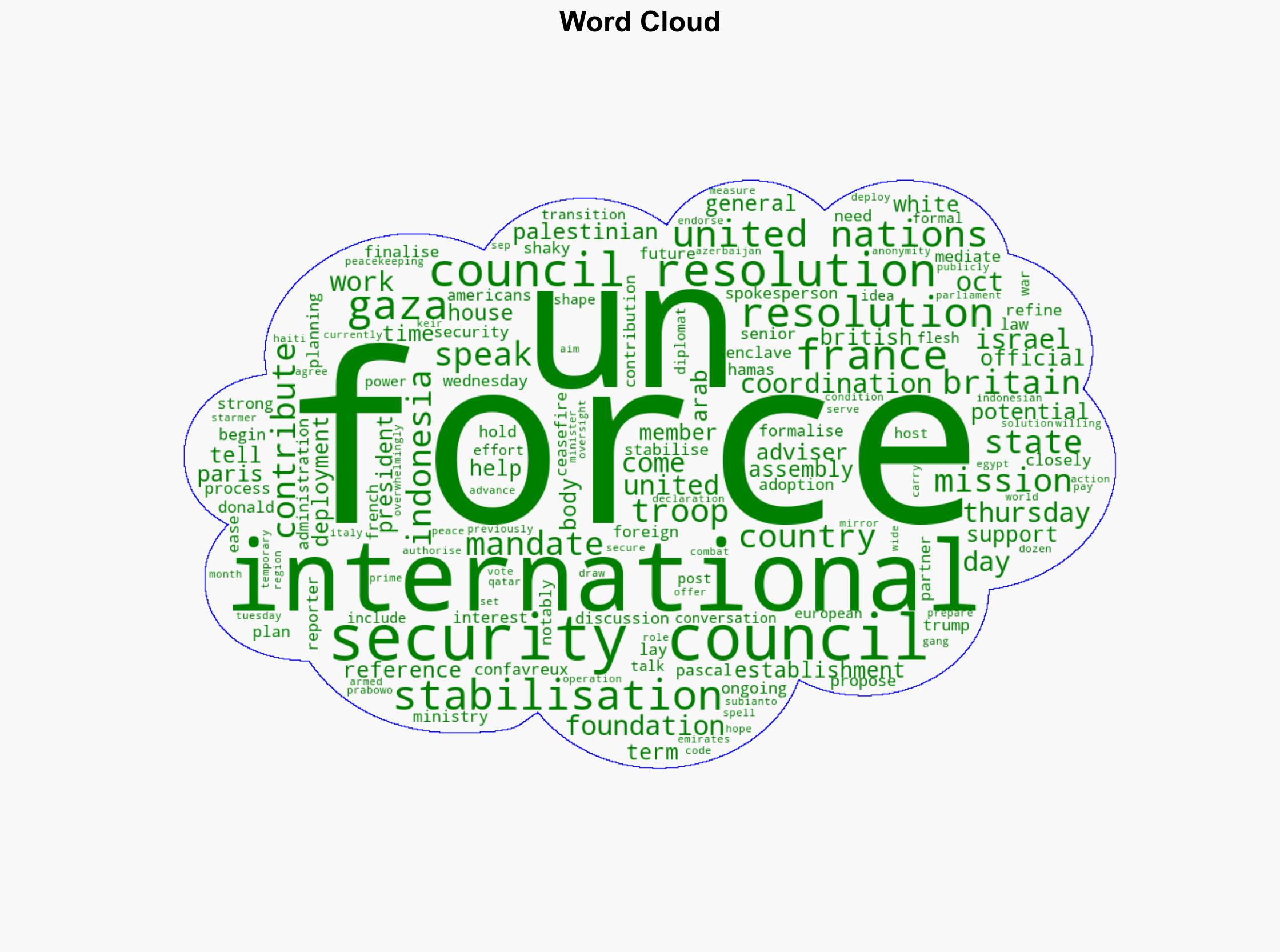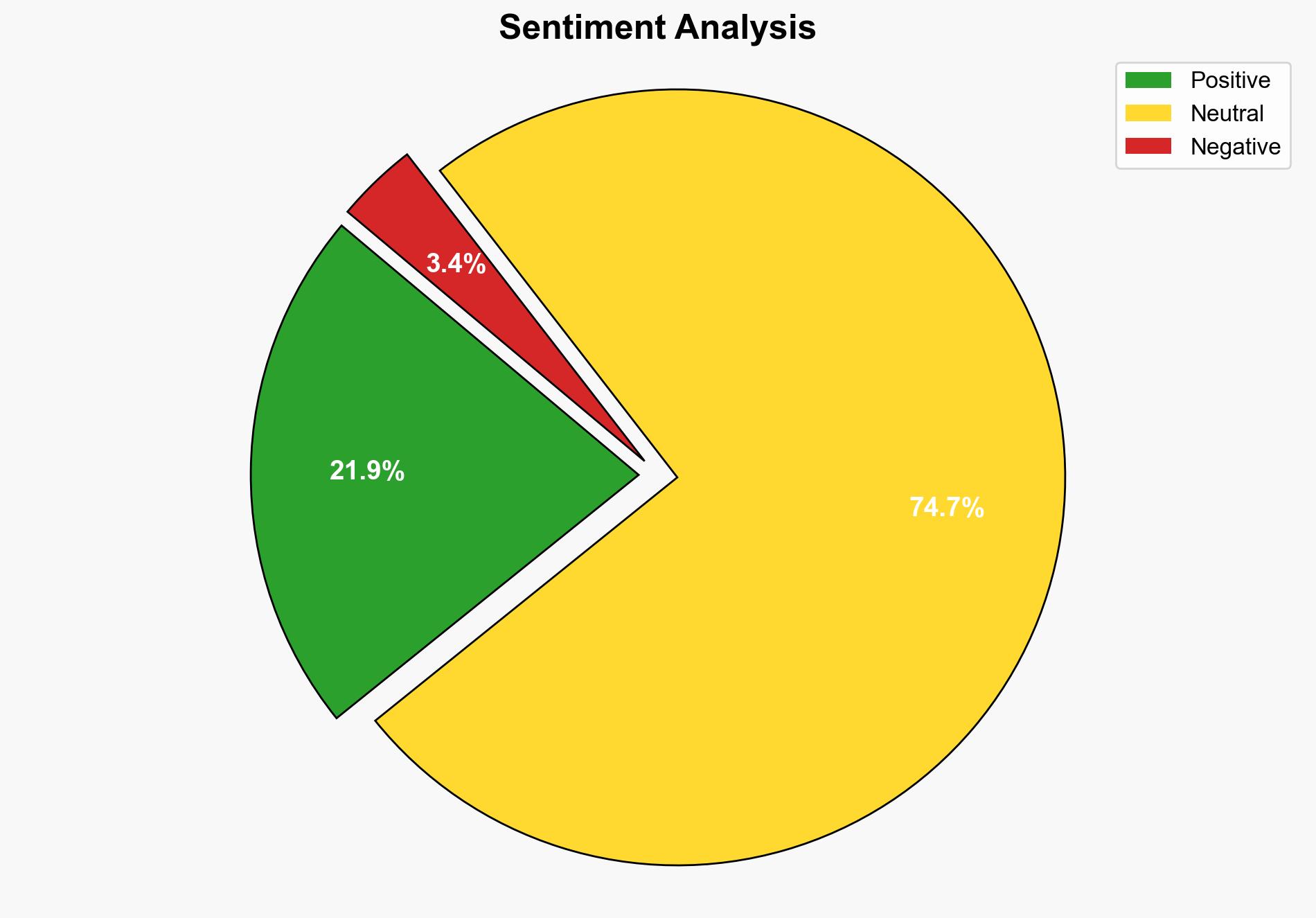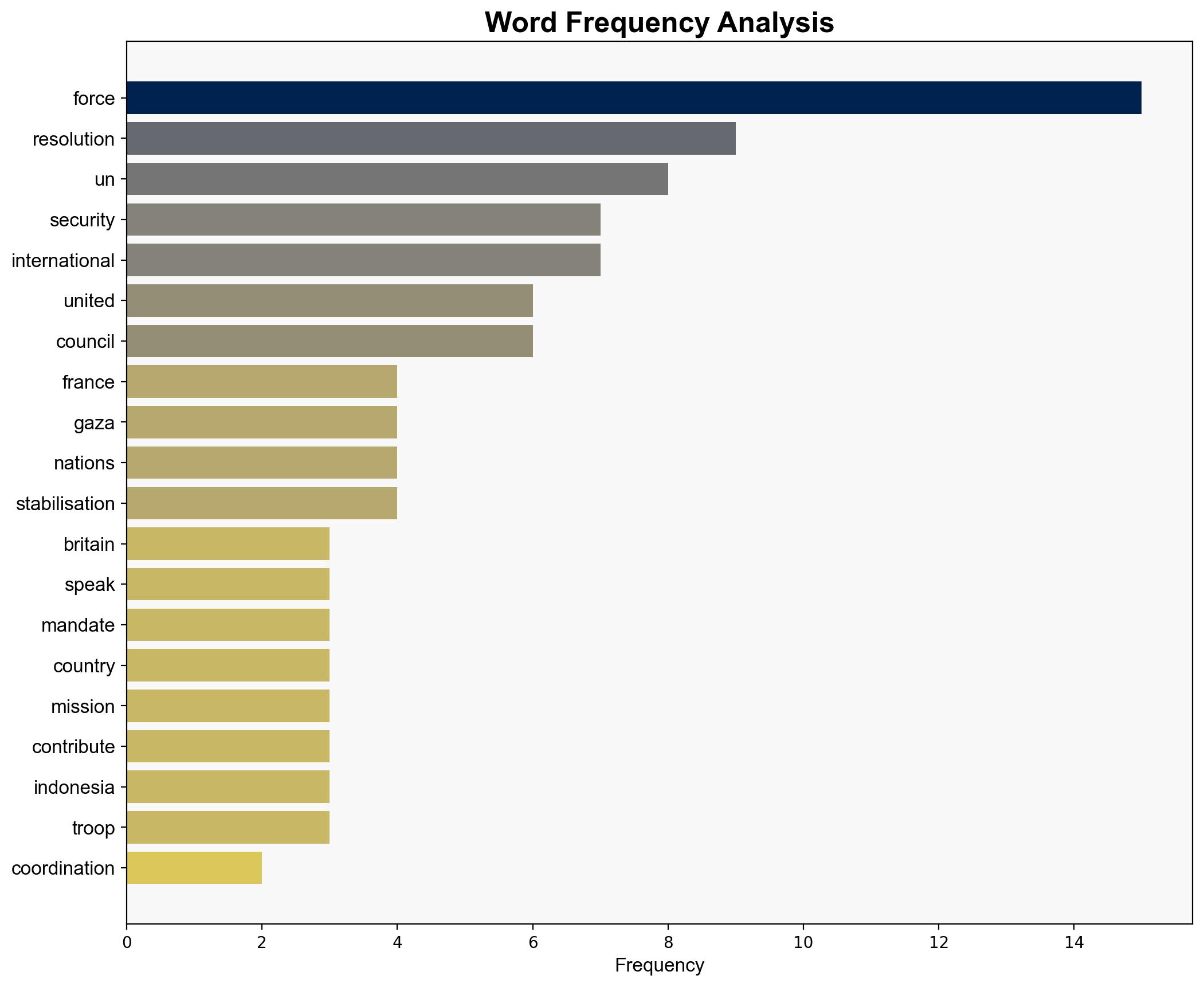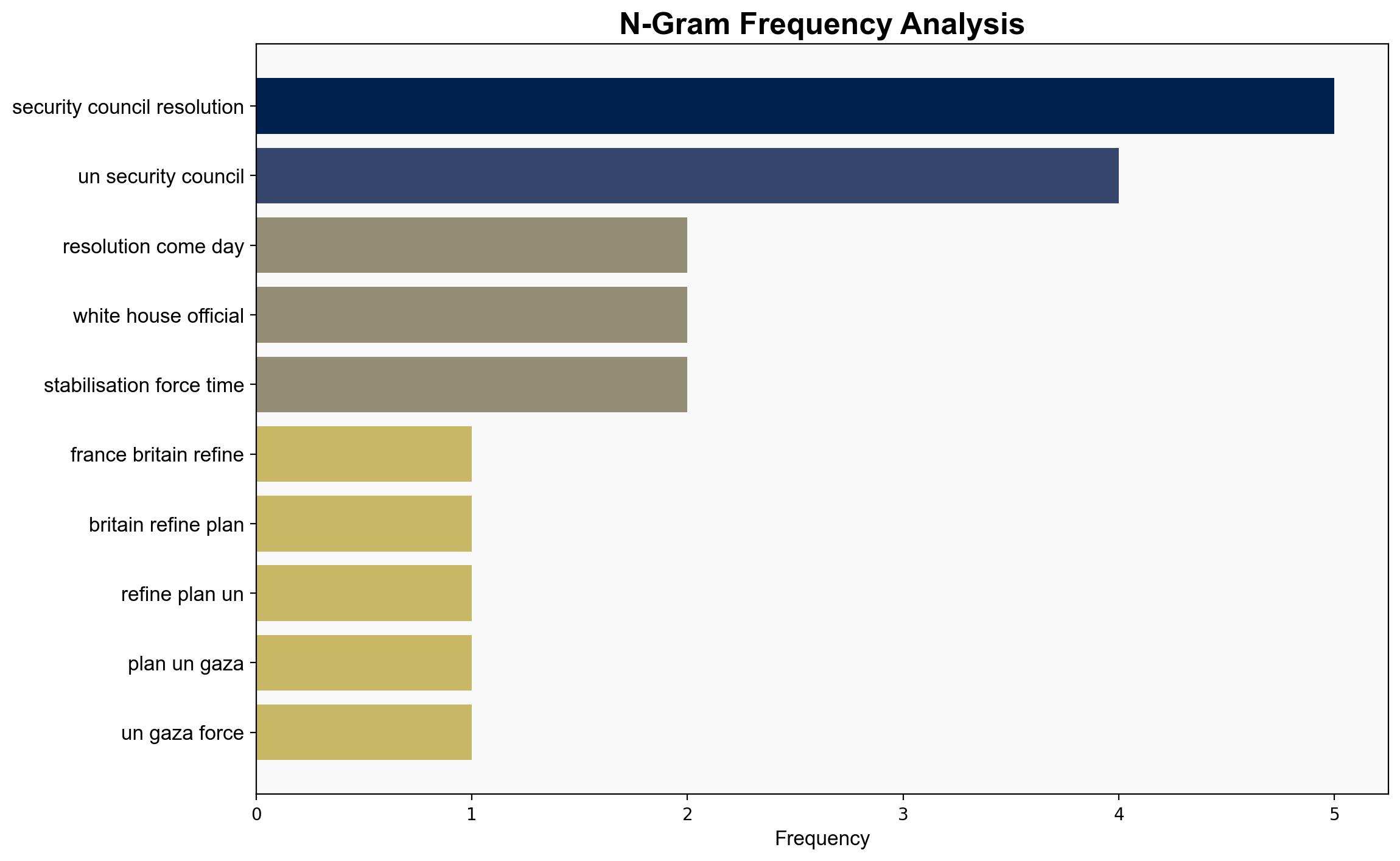France and Britain refine plans at UN for Gaza force resolution – CNA
Published on: 2025-10-17
Intelligence Report: France and Britain refine plans at UN for Gaza force resolution – CNA
1. BLUF (Bottom Line Up Front)
The most supported hypothesis is that France and Britain are spearheading an initiative to establish an international stabilisation force in Gaza, leveraging a UN Security Council resolution to ensure legal and operational legitimacy. Confidence in this hypothesis is moderate due to ongoing diplomatic negotiations and potential geopolitical complexities. Recommended action includes diplomatic engagement with key regional players to ensure broad support and mitigate resistance.
2. Competing Hypotheses
1. **Hypothesis A**: France and Britain are genuinely committed to establishing a UN-mandated international force in Gaza to stabilize the region post-conflict, with support from multiple international actors.
2. **Hypothesis B**: The initiative is primarily a diplomatic maneuver by France and Britain to exert influence in the Middle East, with the actual deployment of a force being secondary or unlikely due to geopolitical resistance and logistical challenges.
Using ACH 2.0, Hypothesis A is better supported by the active coordination with the United States, discussions with potential troop-contributing countries, and the historical precedent of similar UN missions. Hypothesis B is weakened by the explicit mention of ongoing detailed planning and the involvement of multiple stakeholders.
3. Key Assumptions and Red Flags
– **Assumptions**: It is assumed that the UN Security Council will reach a consensus on the resolution and that contributing countries will commit troops.
– **Red Flags**: Potential vetoes from permanent Security Council members, lack of commitment from key regional players, and the historical complexity of deploying forces in conflict zones.
– **Blind Spots**: The impact of regional power dynamics, particularly the roles of Iran and Turkey, is not fully addressed.
4. Implications and Strategic Risks
– **Geopolitical Risks**: Failure to secure a UN mandate could lead to increased regional instability and undermine international credibility.
– **Escalation Scenarios**: If the force is perceived as biased, it could exacerbate tensions between Israel and Palestine, potentially drawing in neighboring countries.
– **Economic and Psychological Dimensions**: Prolonged instability may affect regional economic activities and contribute to humanitarian crises, impacting global perceptions and foreign policy stances.
5. Recommendations and Outlook
- Engage diplomatically with potential veto-wielding members of the UN Security Council to preempt opposition.
- Develop contingency plans for alternative stabilization measures if UN consensus is not achieved.
- Scenario Projections:
- Best Case: Successful deployment of a stabilisation force leading to a reduction in hostilities and a framework for peace negotiations.
- Worst Case: Diplomatic failure resulting in increased violence and regional destabilization.
- Most Likely: Protracted negotiations with partial deployment and limited initial impact.
6. Key Individuals and Entities
– Pascal Confavreux
– Keir Starmer
– Prabowo Subianto
7. Thematic Tags
national security threats, geopolitical strategy, international diplomacy, Middle East stability




